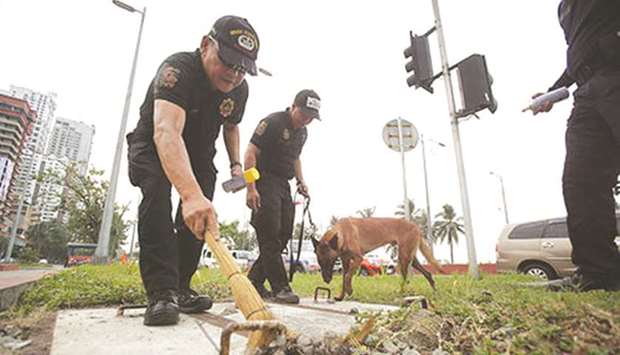Acting Chief Justice Antonio Carpio has cancelled work in all courts in Manila today, following the suspension of classes and city government work in the capital for the state visit of Chinese President Xi Jinping.
Carpio’s order effectively cancelled work in the Supreme Court, the Court of Appeals and all trial courts in Manila, including the Manila Regional Trial Court and Manila Metropolitan Trial Courts. The regular en banc or full-court session of the Supreme Court today was also cancelled.
Several roads in Manila will be closed from 6am today.
The Manila District Traffic Enforcement Unit (MDTEU) warned motorists of heavy traffic and advised them to take alternate routes as the Chinese leader was scheduled to lay a wreath at the Rizal Monument in Rizal Park upon his arrival.
All motorists from the northern part of Manila and intending to use the Roxas Boulevard’s southbound lane should take A Soriano, go straight Magallanes Drive, turn right to P Burgos, and go straight to Lagusnilad (Taft Avenue).
All vehicles from FB Harrison Street should turn right to P Ocampo or go straight to Mabini. All vehicles from Jones, McArthur and Quezon bridges going to Roxas Boulevard via P. Burgos should go straight to Taft Avenue. Other route diversions have also been issued.
Malacanang yesterday said the visit of President Xi to the country would be an opportunity to “further strengthen and sustain our bilateral relations with the foreign country.”
Xi’s visit will be first time by a Chinese leader since 2005. In a statement, Palace spokesman Salvador Panelo said the visit would be a “turning point” in both countries’ histories.
Panelo said the relations between Manila and Beijing “surged forward the visionary leadership of President Duterte.”
“China is now considered a top trading partner of the Philippines, a leading export market for the Philippines, and one of the largest tourist origins to the Philippines,” Panelo said.
He then lauded Xi’s efforts to promote peace and stability in Asia through dialogue and consultations in handling the West Philippine Sea (South China Sea) issue.
“Indeed, amity solves international disputes and even forges a more powerful alliance between both countries against threats to security, including terrorism, violent extremism, criminality, and the drug menace,” he said.

Members of the Manila Police District bomb squad take security measures in Manila for the upcoming state visit of Chinese President Xi Jinping.
